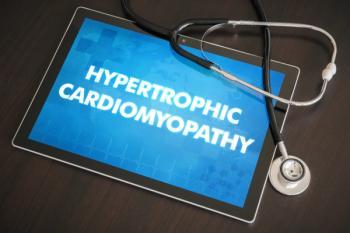
FDA Extends Evkeeza Indication to Include Young Children
Evkeeza treats a rare form of high cholesterol. It is now approved for patients as young of 5 years of age.
The FDA has
Evkeeza is a monoclonal antibody that blocks the function of angiopoietin-like 3 (ANGPTL3) that is now indicated for children as young as 5 years old to control high levels of low-density lipoprotein cholesterol. Evkeeza was initially approved in 2021 as an adjunct to other lipid-lowering therapies in those aged 12 years and older.
“By adding Evkeeza to standard lipid-lowering therapies in this pivotal trial, children were able to reduce their LDL-C, with the vast majority able to achieve declines of nearly 50%. These are clinically meaningful results that physicians should consider when developing a treatment approach for these young patients,” Carissa M. Baker-Smith, M.D., MPH, co-director of Nemours Cardiac Center Cardiovascular Research and Innovation Program, director of Nemours Cardiac Center Pediatric Preventive Cardiology, pediatric cardiologist, and a trial investigator, said in a press release.
Evkeeza has a
Regeneron
The label extension was based on phase 3 trial results of 20 children aged 5 to 11. With the addition of Evkeeza, children were able to reduce their LDL-C by 48% at week 24 on average, meeting the trial’s primary endpoint. Significant reductions were also observed in other key secondary endpoints including levels of apolipoprotein B (ApoB), non-high-density lipoprotein cholesterol and total cholesterol.
The safety profile of Evkeeza observed was consistent with previous results, with the additional adverse reaction of fatigue. Fatigue was reported in three patients. The most common adverse events were COVID-19, fever, headache, throat pain, as well as upper abdominal pain, diarrhea, vomiting, fatigue, nasopharyngitis, rhinitis and cough. Most reported AEs were mild or moderate, and none led to study discontinuation.
Newsletter
Get the latest industry news, event updates, and more from Managed healthcare Executive.























